- Often called the "invisible deficiency," a magnesium deficiency can be easy to miss.
- If you are feeling tired or notice weird muscle cramps it could be a problem with magnesium
- You may want to change your diet to get more into your system
(CNN) -- Feeling exhausted? Or noticing weird muscle cramps that are throwing off your workouts? You might be suffering from a magnesium deficiency.
Dubbed the "invisible deficiency" by some experts because it's so hard to spot and diagnose, magnesium deficiencies are more dangerous than you might think. "Magnesium is involved in over 300 biochemical reactions in your body. It affects everything from your heartbeat to your muscles to your hormones," says Dr. Danine Fruge, Associate Medical Director at the Pritikin Longevity Center in Miami, Florida.
DailyBurn: 10 reasons you're exhausted and what to do about it
Between making sure to get enough fiber in your diet and trying not skimp on iron, monitoring your magnesium intake can easily fall through the cracks. "Studies have shown that only about 25% of U.S. adults are at or above the recommended daily amount of 310 to 320 milligrams for women and 400 to 420 for men," says Fruge.
In fact, the 2005-2006 National Health and Nutrition Examination Survey (NHANES) revealed that at least half of the U.S. population had inadequate intakes of magnesium.
Here's how to figure out whether or not you're getting enough of this super nutrient — and how to fix it if you're deficient.
What you need to know about magnesium deficiency
Loss of appetite, nausea, fatigue -- the initial symptoms of magnesium deficiency are also common side effects of other health conditions, making it difficult to diagnose.
This sneaky disorder manifests in three different stages, depending on how lacking you are in the nutrient. While initially symptoms can be minor, a magnesium deficiency may eventually cause noticeable problems with your muscle and nerve function such as tingling, cramping, numbness and contractions (like that annoying eye twitch you just can't shake). In its worst stages, magnesium deficiency could even cause seizures, personality changes, or abnormal heart rhythms.
DailyBurn: How much sleep do you really need?
To make matters scarier, this condition can be difficult to detect with medical tests. Since only 1% of magnesium is found in your blood (most is in your bones or organs), a simple needle prick often won't help determine your levels. Instead, Fruge says diagnoses are usually made through process of elimination and by examining a patient's lifestyle.
 Be fit: Exercise is the best medicine
Be fit: Exercise is the best medicine  Meet a 77-year-old female bodybuilder
Meet a 77-year-old female bodybuilder Is your diet putting you at risk?
It may be what you're eating — rather than what you're not eating — that's putting you at risk for magnesium deficiency. "It's very easy to get enough magnesium. I think the reason so many people are deficient is because a lot of food and drink can make magnesium unavailable to their bodies," says Fruge.
The main culprits: soda, caffeinated beverages and alcohol, according to Fruge. If you love sipping on soft drinks, you'll be less likely to have adequate amounts of nutrients including magnesium in your diet, according to several studies. And drinking alcohol doesn't help, either. Consuming too much alcohol can interfere with your body's absorption of vitamin D, which aids magnesium absorption. As for food, refined sugar causes the body to excrete magnesium through the kidneys, resulting in a net loss, according to Fruge.
DailyBurn: The 30-second trick that might stop your food cravings
We hate to break it to you, but if you're regularly eating or drinking any of the above (and who isn't?), you may be dealing with at least a minor magnesium deficiency, says Fruge.
 Cancer and Exercise
Cancer and Exercise  Bolly Fit
Bolly Fit Whole foods vs. supplements: Which is best?
Your best bet when it comes to fending off a magnesium deficiency is to take preventative measures. So, should you turn to food or supplements for your fix?
Supplements "will probably give you a boost, but it's best to focus on food," says Dr. Fruge. Plus, your body absorbs magnesium from food differently than it does from supplements. You should only use magnesium supplements under the direction of a doctor — and be sure not to exceed 350 non-food milligrams of magnesium per day (unless a medical professional instructs you differently).
"Your body has built-in mechanisms that don't allow it to overdose from food, but that doesn't exist for supplements. Too much magnesium via supplement can put your heart into an arrhythmia and that can even be fatal, particularly for people with issues like diabetes," says Fruge.
Food sources are your safest bet so focus on amping up your consumption of leafy greens — one cup of cooked spinach provides 157 milligrams of magnesium. Legumes are a solid choice too, with a cup of cooked white beans coming in at 113 milligrams of the nutrient. And if you're a fan of squash and pumpkin seeds, one cup packs in a whopping 649 milligrams. Other great options are nuts, including almonds and cashews, most types of fish, and whole grains.
What about magnesium oil or other trendy products?
From infused oils to lotions, spa-like magnesium treatments are gaining steam among natural health junkies. But whether magnesium-enriched skin products will actually help address a deficiency remains questionable.
"The bottom line is that the transdermal absorption of magnesium hasn't been studied that well. From reading the literature, the percentage that gets into your bloodstream is fairly small," says Dr. Michael Shapiro of New York City's Vanguard Dermatology. Shapiro says that when you're applying magnesium to your skin, "the benefits are probably localized to that area," rather than having any real internal effect.
That being said, if you're experiencing issues like eczema, dandruff, or mild muscle cramps, it might not hurt to give these enhanced grooming products a try. "Some sources show it may help in those areas. But any effect that occurs would be more readily produced if you ingest it orally, whether through food or under the supervision of a doctor with supplements," Shapiro says.
So if you suspect you may fall in with the majority of the population that isn't managing to get enough magnesium, put down the bath salts or magnesium oils, and stock up on healthy food -- your body will thank you for it.
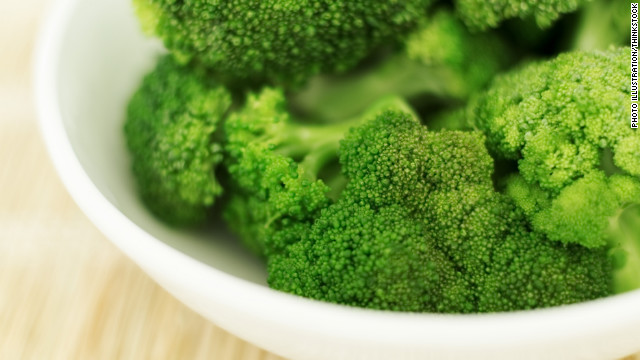 A superfood is easy to find in the grocery store, contains nutrients that are known to enhance longevity and has other health benefits that are backed by peer-reviewed, scientific studies. Broccoli makes the list because it's one of nature's most nutrient-dense foods, with only 30 calories per cup. That means you get a ton of hunger-curbing fiber and polyphenols -- antioxidants that detoxify cell-damaging chemicals in your body -- with each serving.
A superfood is easy to find in the grocery store, contains nutrients that are known to enhance longevity and has other health benefits that are backed by peer-reviewed, scientific studies. Broccoli makes the list because it's one of nature's most nutrient-dense foods, with only 30 calories per cup. That means you get a ton of hunger-curbing fiber and polyphenols -- antioxidants that detoxify cell-damaging chemicals in your body -- with each serving. 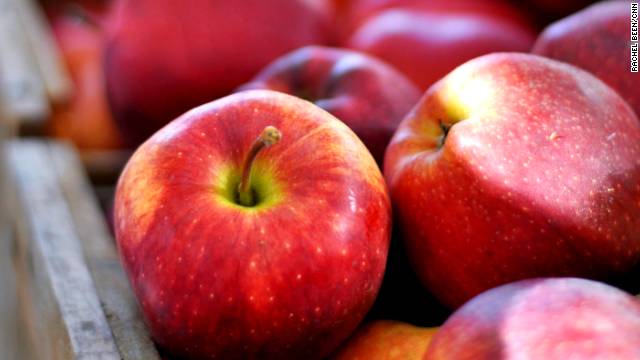 Apples have less than 50 calories but are a great source of antioxidants, fiber, Vitamin C and potassium, according to
Apples have less than 50 calories but are a great source of antioxidants, fiber, Vitamin C and potassium, according to 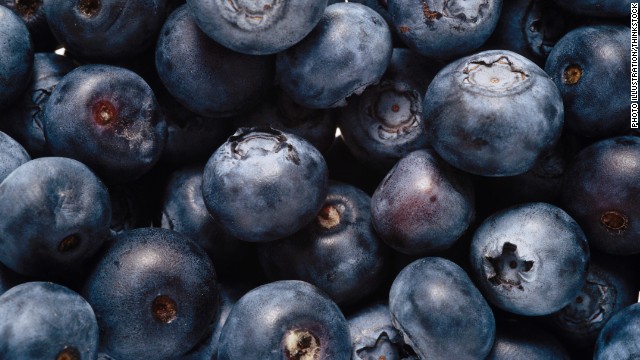 Blueberries are often singled out as a superfood because studies have shown they aid in everything from fighting cancer to lowering cholesterol. But all berries, including raspberries, strawberries and blackberries, contain antioxidants and
Blueberries are often singled out as a superfood because studies have shown they aid in everything from fighting cancer to lowering cholesterol. But all berries, including raspberries, strawberries and blackberries, contain antioxidants and 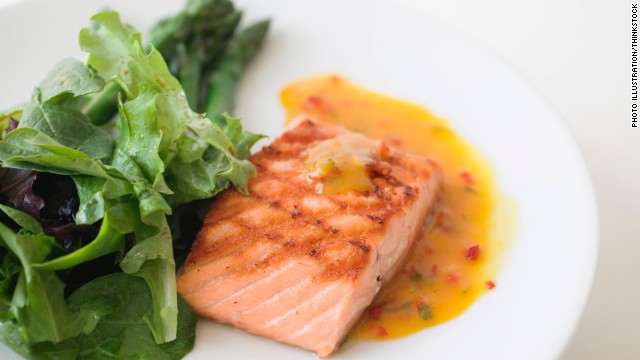 Salmon provides a high dose of omega-3 fatty acids, which studies show significantly lower the risk of heart disease. Omega-3 fatty acids fight back by reducing inflammation and slowing the rate of plaque buildup in blood vessels. Salmon is also a good source of lean protein.
Salmon provides a high dose of omega-3 fatty acids, which studies show significantly lower the risk of heart disease. Omega-3 fatty acids fight back by reducing inflammation and slowing the rate of plaque buildup in blood vessels. Salmon is also a good source of lean protein. 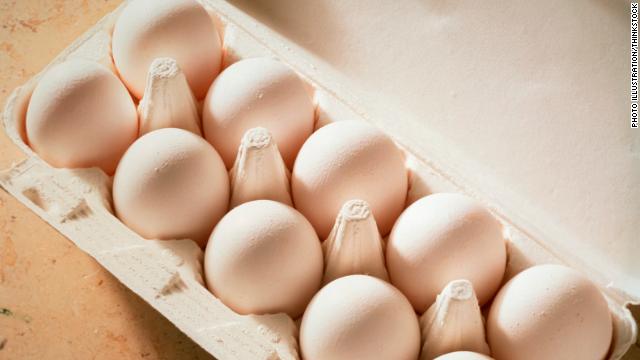 Eating a breakfast high in protein is a good way to keep hunger at bay throughout the day. Eggs are full of choline, a nutrient that helps block fat from being absorbed in the liver.
Eating a breakfast high in protein is a good way to keep hunger at bay throughout the day. Eggs are full of choline, a nutrient that helps block fat from being absorbed in the liver. 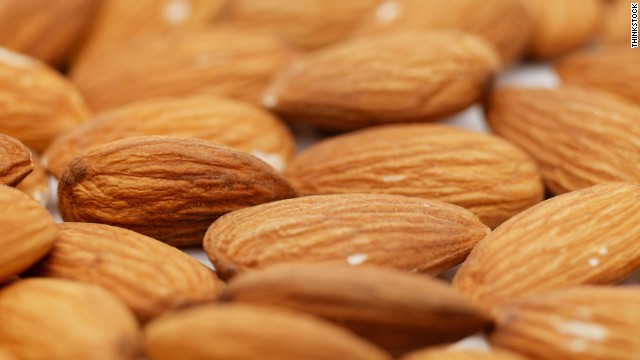 Many dieters shy away from nuts because of their high calorie and fat count. But studies show that eating a handful several times a week can help shed pounds and prevent heart disease. Almonds, in particular, contain lots of monounsaturated fats and fiber. (Healthy swap: Replace peanut butter with almond butter.)
Many dieters shy away from nuts because of their high calorie and fat count. But studies show that eating a handful several times a week can help shed pounds and prevent heart disease. Almonds, in particular, contain lots of monounsaturated fats and fiber. (Healthy swap: Replace peanut butter with almond butter.) 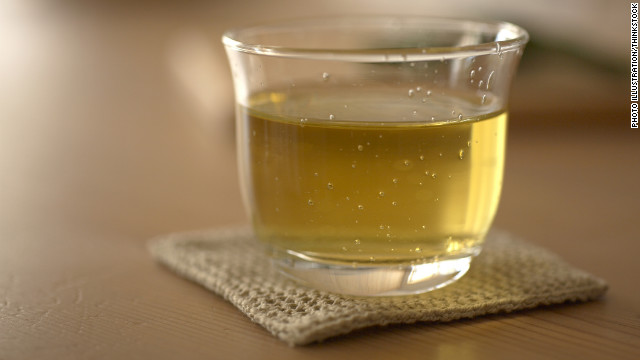 Staying hydrated will keep you from munching absentmindedly, and if you choose to drink
Staying hydrated will keep you from munching absentmindedly, and if you choose to drink 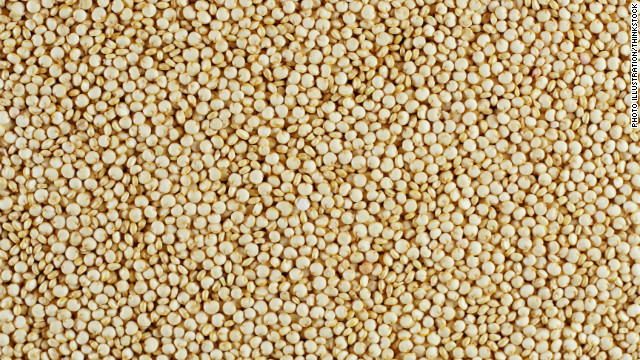 Quinoa is the popular whole-grain du jour because it also contains a good dose of protein to help build muscle. Yet including any type of whole grain in your diet -- from barley to brown rice -- will aid in weight loss by filling you up for fewer calories.
Quinoa is the popular whole-grain du jour because it also contains a good dose of protein to help build muscle. Yet including any type of whole grain in your diet -- from barley to brown rice -- will aid in weight loss by filling you up for fewer calories. 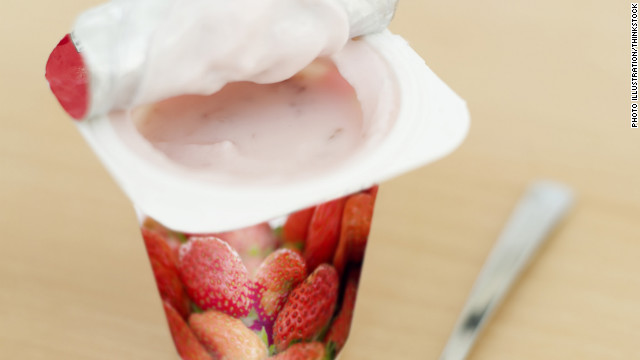 Low-fat dairy is an important part of any superfood-focused diet.
Low-fat dairy is an important part of any superfood-focused diet. 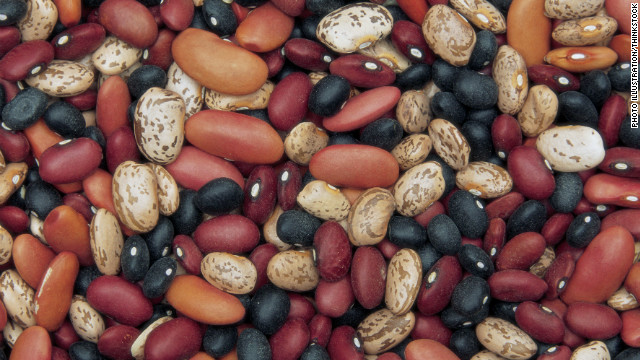 Beans, beans, the magical fruit; the more you eat, the more ... you lose weight. Black, kidney, white and garbanzo beans (also known as chickpeas) all end up on superfood lists because of their fiber and protein. They fill you up and provide muscle-building material without any of the fat that meat can add to your meal.
Beans, beans, the magical fruit; the more you eat, the more ... you lose weight. Black, kidney, white and garbanzo beans (also known as chickpeas) all end up on superfood lists because of their fiber and protein. They fill you up and provide muscle-building material without any of the fat that meat can add to your meal. 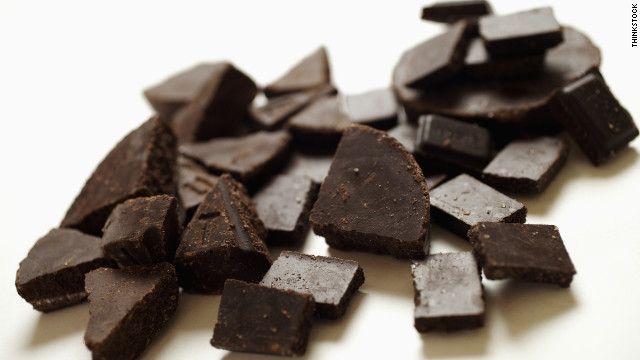 While researchers aren't positive that
While researchers aren't positive that 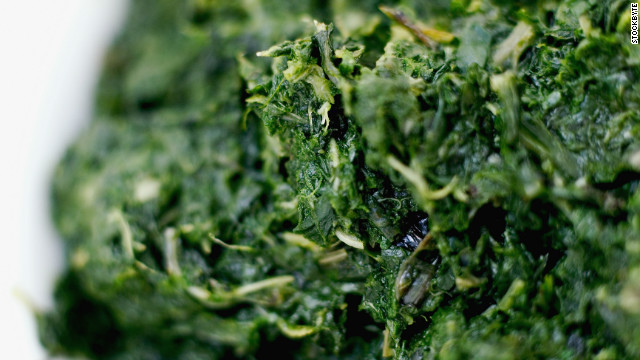 Spinach is a great source of iron, which is a key component in red blood cells that fuel our muscles with oxygen for energy. But researchers in Sweden recently identified another way in which these greens might keep you charged: Compounds found in spinach actually
Spinach is a great source of iron, which is a key component in red blood cells that fuel our muscles with oxygen for energy. But researchers in Sweden recently identified another way in which these greens might keep you charged: Compounds found in spinach actually 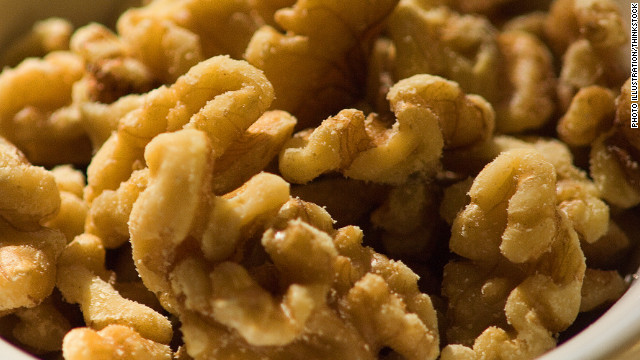 Walnuts are packed with tryptophan, an amino acid your body needs to create the feel-great chemical serotonin. (In fact, Spanish researchers found that walnut eaters have higher levels of this natural mood-regulator.) Another perk: "They're digested slowly," says Dr. David Katz, director of the Yale Prevention Research Center. "This contributes to mood stability and can help you tolerate stress."
Walnuts are packed with tryptophan, an amino acid your body needs to create the feel-great chemical serotonin. (In fact, Spanish researchers found that walnut eaters have higher levels of this natural mood-regulator.) Another perk: "They're digested slowly," says Dr. David Katz, director of the Yale Prevention Research Center. "This contributes to mood stability and can help you tolerate stress." 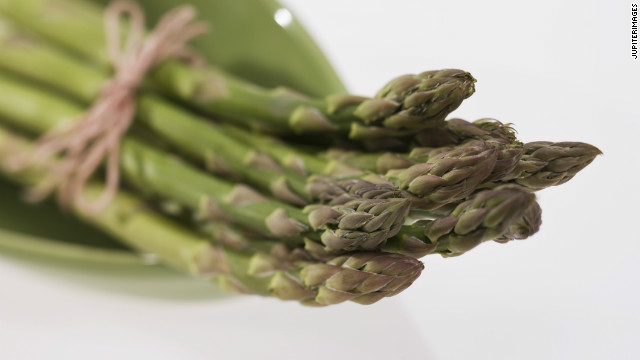 Asparagus is one of the best veggie sources of folate, a B vitamin that could help keep you out of a mental slump. "Folate is important for the synthesis of the neurotransmitters dopamine, serotonin and norepinephrine," says Dr. David Mischoulon, associate professor of psychiatry at Harvard Medical School. All of these are crucial for mood.
Asparagus is one of the best veggie sources of folate, a B vitamin that could help keep you out of a mental slump. "Folate is important for the synthesis of the neurotransmitters dopamine, serotonin and norepinephrine," says Dr. David Mischoulon, associate professor of psychiatry at Harvard Medical School. All of these are crucial for mood. 













No comments:
Post a Comment